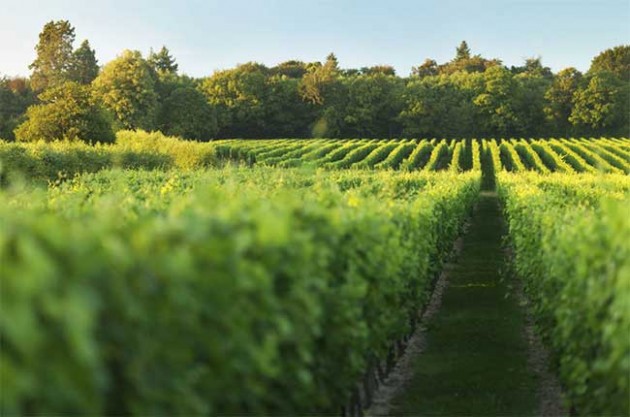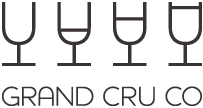New Bill to make British embassies serve English wine
Britain’s Diplomatic Service should do more to support English wine – and Welsh wines – at official functions overseas, according to Nusrat Ghani MP. Her Sussex constituency includes several English wine producers.
MPs approved Ghani’s bill to be introduced into the UK’s lower parliamentary chamber, the House of Commons, this week. She described it as one of the first ‘Brexit bills’, coming as the government prepares to trigger Article 50 and launch the two-year process of leaving the European Union.
‘In a post-Brexit world, we must do all we can to get behind industries that show the sort of potential of our wine industry,’ said Ghani. But, the bill would probably need government support to make it into law. ‘We are delighted that this subject is being debated in Parliament,’ said Barry Lewis, CEO of United Kingdom Vineyards Association.
‘English wines seldom feature on the diplomatic service wine list, and it stands to reason that as the representatives for the UK around the world, embassies and high commissions should as a matter of course buy in English and Welsh wines for their functions,’ he said in a statement published on Ghani’s website. Homegrown wines are already a strong feature at government events in London.
Figures from the UK government’s hospitality cellar show that more than 350 bottles of English and Welsh wines were opened at official functions in the 2015 to 2016 tax year. English wine is an official reception wine, while other bottles opened for guests during that period included Ridgeview Grosvenor Brut 2009, Breaky Bottom Brut Reserve and Camel Valley Brut from the 2008 vintage and Nyetimber Classic Cuvee 2007.

EU holds back from enforcing calorie labels on wine
There’s no reason why wine producers should not provide more comprehensive information on ingredients and nutrition, says a new report published by the European Commission.
But, Commission officials announced this week that they wouldn’t impose tighter labelling rules on wine, beer and spirits – for now. Instead, producers will be given a chance to take more ‘voluntary’ action.
Nutrition and ingredients labelling remain controversial issues in the wine world, although there is evidence of growing support for calorie counts. Alcoholic drinks above 1.2% abv have a special exemption from EU food labelling rules that means producers don’t have to list nutritional information, such as calories, or ingredients – unless the ingredient is a proven allergen, like sulphites.
Producers have one year to develop a ‘self-regulatory proposal’ that improves the amount of information available to consumers, the European Commission said. European commissioner for health and food safety, Vytenis Andriukaitis, said, ‘This report supports the right of people in the European Union to be fully informed about what they drink.
‘It does not identify any objective grounds justifying the absence of the list of ingredients and nutrition information on alcoholic beverages.’
Some producers and retailers support calorie labelling on wines, in particular. In the UK, which has often led the way on nutrition labelling in general and remains part of the EU for at least two more years, the Sainsbury’s and Waitrose supermarkets have supported calorie counts on bottles in recent years.
Others support providing information online rather than on the label. With Brexit in mind, it is worth pointing out that the UK government has joined calls for better calorie labelling in alcohol in recent years – although it has also preferred a self-regulatory approach. ‘Now the challenge is on us, and we embrace the responsibility,’ said Ignacio Sánchez Recarte, secretary general of European winemaker body CEEV.
Prosecco DOC chief to ban Glyphosate chemical spray
Stefano Zanette, president of the Prosecco DOC council, said that he wanted to voluntarily ‘eliminate’ the use of one particular herbicide and two fungicides in the Italian sparkling wine production zone. It is part of the council’s strategy to improve Prosecco’s sustainability credentials.
‘Even if permitted by law, these elements seem to have become a source of concern for both local residents and consumers,’ said Zanette. ‘I am committed to ensuring that the ban of these active ingredients is binding, i.e. mandatory for all producers in our denomination.’
He named the three products as the Glyphosate herbicide and the Folpet and Mancozeb fungicides. None of the three chemical sprays named are forbidden under European Union rules.
Zanette added, ‘In the very near future, Prosecco DOC plans to obtain a certification that will initially guarantee the sustainability of individual wines and will ultimately guarantee the sustainability of the entire Prosecco denomination.’ Glyphosate, one of the world’s most widely used herbicides, has caused significant debate. EU members states could not agree on its future during meetings in 2016 – following a three-year review of evidence.
This week, the European Chemical Agency said Glyphosate was safe to use. But a final decision will rest with EU member states later this year.
A World Health Organisation study said in May 2016 that the weedkiller was unlikely to pose an increased risk of cancer in humans, although earlier WHO research separately suggested the risk might be real.
The European Commission said last year that Glyphosate could continue to be used during its review period under certain conditions, including minimal use if near to public parks or playgrounds. Monsanto, which produces Glyphosate, has repeatedly stated that its product does not pose a health risk.




